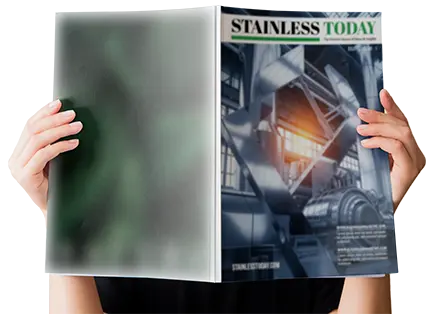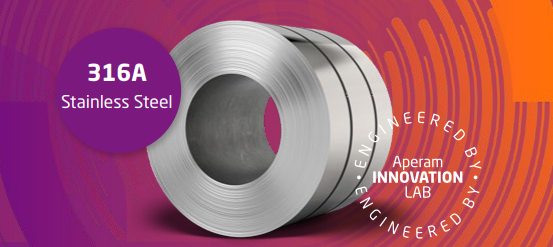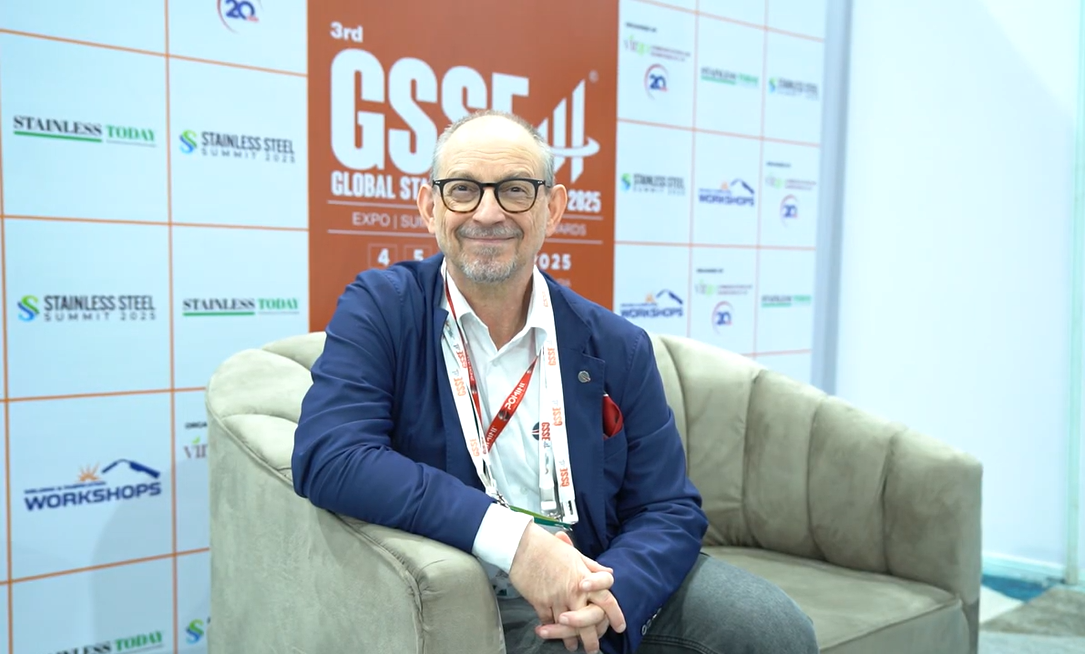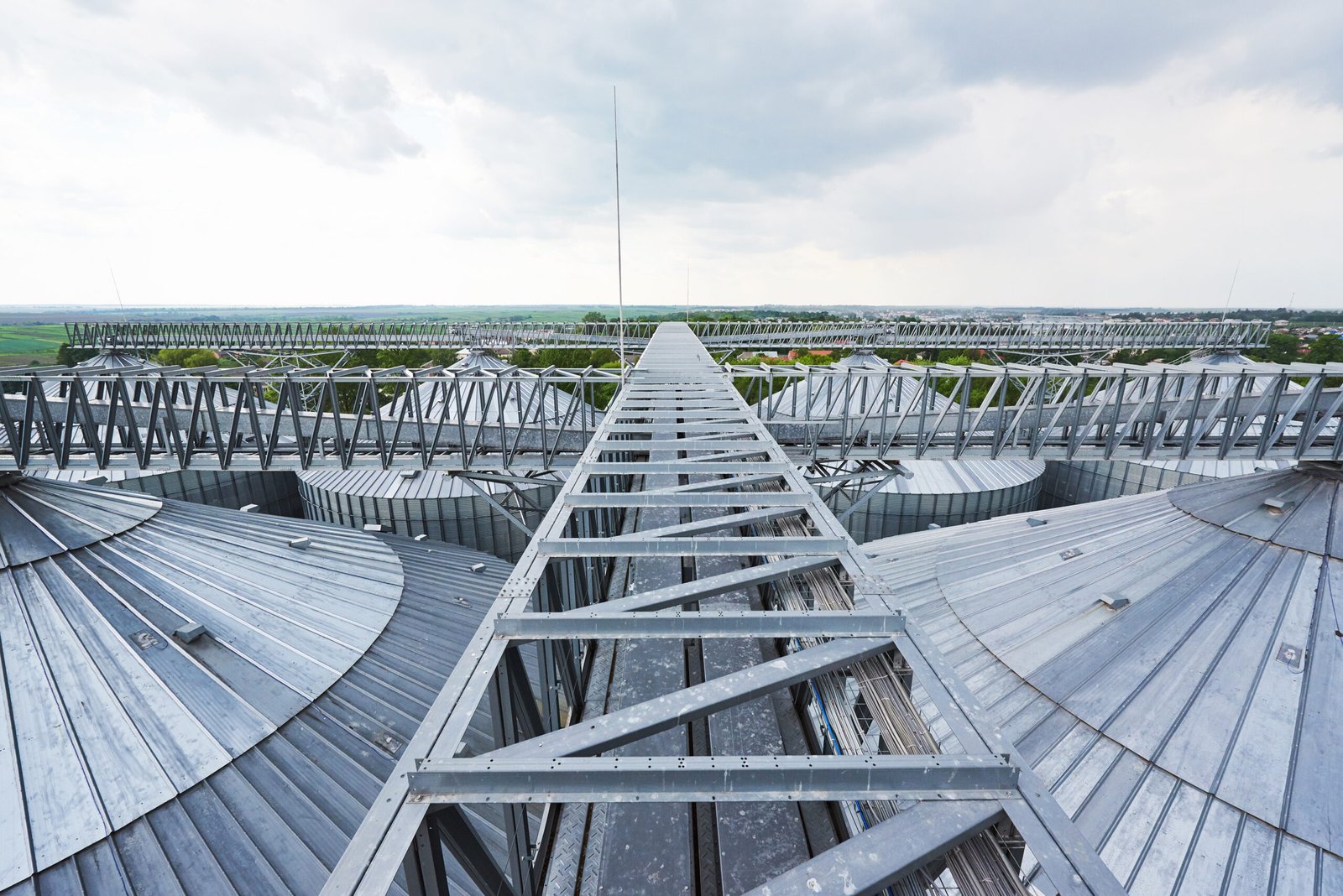“Alleima leads through continuous innovation.”
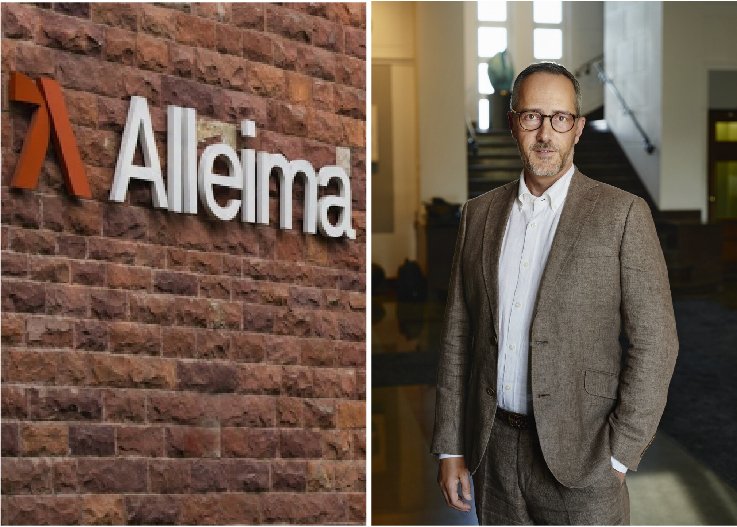
Tom Eriksson, R&D Head, Alleima, discusses the strides taken in innovating technology that helps keep stainless steel sustainable and at the core of all the major industries across the world.
Alleima has a strong presence in various sectors with your seamless tubes, Kanthal heating technology, and precision strip steel. How do you ensure that stainless steel remains a core material across these divisions, particularly for industries like petrochemical, oil and gas and transportation?
We are a leading manufacturer of high value-added products in advanced stainless steels and special alloys, as well as products for industrial heating. The core of Alleima’s operations is advanced materials technology. With a portfolio of over 900 active alloy compositions, our offering comprises products for several customer segments, including the petrochemical, oil and gas, and transportation industries.
Stainless steel and our advanced alloys are fundamental to our products across these demanding sectors, optimised for extreme conditions such as corrosion resistance and high-pressure endurance.
We work in close collaboration with our customers. By involving our material technology experts early in the design and material selection process, we ensure that each application benefits from an alloy tailored to its specific requirements. This collaboration allows us to leverage our extensive knowledge of industrial processes, enabling us to create solutions that not only meet but often exceed performance standards in complex environments.
We continuously evolve and address new challenges as industries grow and advance. This approach not only secures reliable, long-term solutions for today’s applications but also positions us to support future developments in sectors where performance and durability are paramount.
With the rising demand for sustainable solutions, how does Alleima’s stainless steel contribute to environmental goals in sectors like Hydrogen, Renewable Energy and Nuclear? Could you share specific examples where your materials have supported sustainability initiatives?
The urgent need to reduce CO2 emissions, increase the demand for energy from new sources. Alleima is dedicated to support the energy transition through advanced materials tailored for renewable energy and nuclear applications. As renewable energy technologies progress, they present unique material challenges. Alleima has invested heavily in R&D to develop materials capable of withstanding high stresses and corrosive environments found in applications such as offshore wind, concentrated solar power (CSP), hydrogen infrastructure, and nuclear energy.
For example, in offshore wind power, where turbines operate in harsh marine conditions, our materials resist corrosive seawater, ensuring long-term durability. In concentrated solar power technology, our materials are used in absorber tubes within parabolic trough systems, built to handle high temperatures and corrosive heat-transfer fluids like molten salt, crucial for effective solar energy capture and storage.
Alleima also brings over 50 years of expertise in the nuclear sector, supplying critical components that meet the most stringent safety and quality standards. Our nuclear products, including steam generator tubing and zirconium cladding tubes, are used in over 100 reactors globally. These materials are meticulously developed to withstand the extreme demands of nuclear energy, supporting safe and reliable energy production with minimal emissions.
Future materials will need to be lighter, stronger and able to resist corrosion from demanding environments and high temperatures – demands that we have already spent many years optimising our materials to deal with. Approximately two-thirds of our strategic R&D focuses on future technologies, including hydrogen, renewable energy, nuclear power, and electric heating.
Seamless tubes are essential for high-stress environments such as oil and gas exploration. What are some of the key advantages of using stainless steel in these challenging conditions, and how does Alleima’s technology enhance performance in such applications?
For the oil and gas industry, this means that solutions need to withstand extreme, high-stress environments, particularly as production moves to deeper, more challenging offshore locations.
With our extensive experience and focus on innovation, we continually refine our materials to withstand the severe corrosion and mechanical demands found in subsea applications. This includes developing alloys that offer superior resistance to the challenging, chloride-rich environments in deepwater oil and gas fields.
We work closely with our customers in different industries to ensure that our materials meet the evolving needs. By focusing on enhanced durability and performance, we help our customers achieve greater operational efficiency and safety. Our expertise in materials engineering allows us to develop solutions that enable the reliable functioning of critical systems like umbilicals and control lines, which are essential for remote, subsea operations.
Heating technology is critical for many industries. How do the high-temperature-resistant alloys used in Kanthal heating solutions benefit these industries, particularly in terms of durability, safety, and efficiency?
As industries worldwide transition to more sustainable and efficient heating solutions, Alleima, through Kanthal, has taken the lead in electric industrial heating. Our advanced materials and alloy designs are central to Kanthal’s solutions, providing the durability, safety, and efficiency needed in high-demand sectors like automotive, metal processing, and chemical production.
The materials unique properties, such as corrosion resistance and high-temperature strength, allow Kanthal heating elements to perform consistently under intense operational conditions. This ensures not only extended lifespans but also minimised maintenance needs, which translates to greater overall efficiency and safety for our customers.
Our ongoing R&D efforts focus on refining these materials and enhancing the performance of our heating solutions to support the transition to electric heating—a key step toward reducing carbon emissions in industries that have traditionally relied on fossil fuels. By continuously advancing our technology, we provide solutions that enable industries to meet stringent safety and environmental standards, all while optimising energy efficiency.
Precision strip steel is an important material in sectors like transportation and consumer goods. Can you elaborate on the role of stainless steel, and how it helps meet the increasing demands for precision and performance in advanced manufacturing?
Precision strip steel, particularly in stainless steel, is crucial for applications in transportation and consumer goods where high-quality and precise control over production parameters are essential. Stainless steel’s unique properties, such as corrosion resistance, strength, and dimensional stability, make it an ideal choice for advanced manufacturing processes that require consistency and reliability under demanding conditions.
In consumer goods, our stainless steel precision strips are used in applications where both durability and precise performance are critical. For example, as a world-leading supplier of compressor valve steel, we support the energy efficiency of cooling systems found in refrigerators, freezers, heat pumps, and air conditioners. Our latest innovation, the Freeflex® product line, is designed to withstand stricter operating conditions while delivering enhanced energy efficiency. Improved valve materials and mechanical properties contributed to a roughly 18 per cent increase in cooling system efficiency from 2012 to 2022, equivalent to the output of five modern nuclear power plants (50 TWh), resulting in CO2 savings of over 21 million tonnes globally.
In transportation, we supply stainless steel and titanium tubes for hydraulic systems, jet engines, and coated strip steel for fuel cells. Our advanced materials help meet the growing demand for lighter, stronger, and more resilient components, ensuring flawless operation under high pressures and contributing to reduced fuel consumption.
Alleima’s expertise in stainless steel allows us to provide materials that meet the highest standards of precision and performance, supporting innovations in advanced manufacturing and aligning with the increasing need for sustainable, efficient technologies in both consumer and transportation sectors.
Given the focus on renewable energy and hydrogen applications, how does Alleima’s coated strip steel for hydrogen and renewable energy solutions stand out? How does stainless steel play a role in the success of these applications?
As the global demand for cleaner energy solutions rises, Alleima is dedicated to advancing the materials needed for renewable energy and hydrogen applications. Our coated strip steel is essential in fuel cell technology, which is pivotal for hydrogen-powered systems in both transportation and stationary power generation. Developing materials that can endure the demanding environments of these applications requires a deep understanding of both corrosion resistance and mechanical performance—areas where Alleima leads through continuous innovation.
Our focus is not just on creating products but on advancing technology that supports the safe and efficient distribution of hydrogen and optimises fuel cell performance. By combining our expertise in stainless steel with advanced coating technology, we enable fuel cells to operate reliably under the high pressures and corrosive conditions inherent in these applications.
At Alleima, our commitment to sustainable energy solutions drives us to push the boundaries of what materials can achieve. Through strategic R&D and industry partnerships, we are not only meeting today’s needs but also anticipating future demands, paving the way for a more sustainable energy landscape powered by hydrogen.
The medical sector requires materials that are both reliable and biocompatible. How has Alleima’s expertise in ultra-fine wire and components made from stainless steel and precious metals influenced the development of new medical technologies, and what are the latest advancements you are working on?
In the medical sector, precision, reliability, and biocompatibility are critical. Alleima’s expertise in designing, developing and manufacturing ultra-fine wire and components made from stainless steel, nitinol and precious metals is instrumental in advancing life-changing medical technologies that require exceptional material performance. Our expertise in materials and precision manufacturing supports a broad spectrum of medical therapies. For example, our customised solutions are integral to minimally invasive devices, where qualities like strength, durability, flexibility, and biocompatibility are crucial. We work closely with leading medical device manufacturer, from idea to implementation of a medical solution, ensuring our materials meet the stringent standards of this field.
Our work with nitinol, an alloy known for its shape-memory, flexibility and durability, is a prime example of our commitment to supporting next-generation medical devices. This alloy, along with our advanced services from electroplating and coating to shape-setting and cleanroom assembly, provides precision and quality that enhance both the functionality and safety of devices used in applications ranging from cardiovascular interventions to neurological treatments and robotic surgery.
Through focused R&D efforts, we continue to develop solutions that push the boundaries of what’s possible in medical technology. With our partners, we strive for bringing innovative, life-changing medical solutions to life that ultimately improve patient outcomes. By leveraging our in-depth material knowledge and broad in-house capabilities, we are helping to shape the future of medical device technology.
As a global leader in stainless steel and materials, how does Alleima approach innovation to stay ahead in the market, particularly in industries that are rapidly evolving like hydrogen energy and medical technology? How do you see stainless steel evolving within these sectors over the next decade?
As the global demand for cleaner energy solutions rises, Alleima is dedicated to advancing the materials needed for example renewable energy, hydrogen applications and medical technology. Stainless steel will continue to be important for these areas going forward.
Today we have a portfolio of over 900 active alloy compositions, our offering comprises products for several customer segments, including hydrogen energy and medical technology. Approximately, two-thirds of our strategic R&D focuses on future technologies, including hydrogen, renewable energy, nuclear power, and electric heating. Our ongoing R&D efforts focus on refining these materials and enhancing the performance of our products and solutions. We work closely with our customers in different industries to ensure that our materials meet the evolving needs.
We take a broad approach within our Strategic Research function, building knowledge and expertise across our research platforms—Corrosion Resistant Alloys, High Temperature Materials, Functional Properties, Powder Technology, Modelling and Data Analytics, and Surface Engineering—which allows us to stay ahead and support the evolving needs of our customers in rapidly advancing industries.

